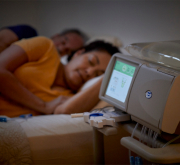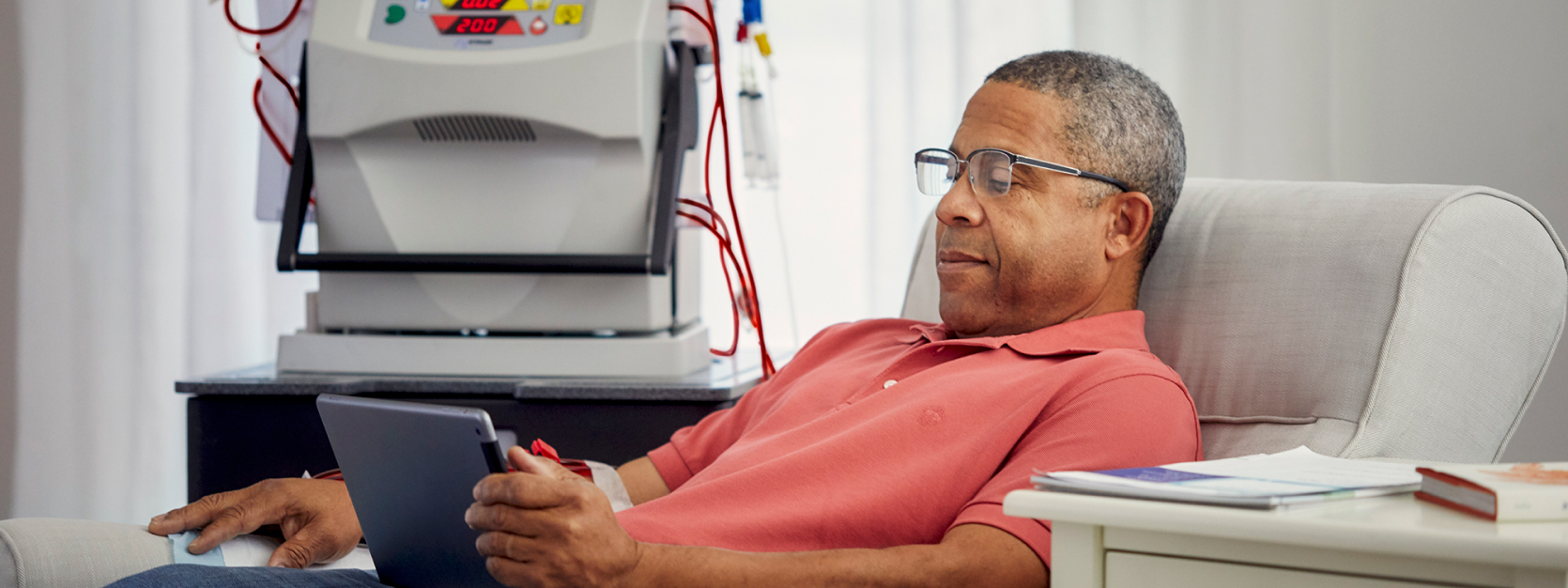Home Dialysis Monitoring and Safety
Reviewed by Medical Contributor Melissa Silva, MSN, RN, CNML on November 21, 2023.
Home dialysis has many benefits, including the convenience of performing peritoneal dialysis (PD) or hemodialysis (home HD) at home with the confidence that comes from working closely with and being cared for by healthcare professionals. Thanks to your expert care team, 24/7 access to training resources, and PatientHub services, you'll never feel alone while on home dialysis.

Everyday home dialysis essentials
Even after your training, you may have questions about home dialysis at times. You’ll have 24/7 access to your training materials to help answer any questions that may arise during your treatment. The PatientHub platform is another tool that will help you stay on track, along with daily communication with members of your care team.

Time-critical home dialysis support
If you ever have urgent questions about your access site, peritoneal dialysis machine, hemodialysis machine, or your health, we’re here with 24/7 on-call nursing support. Together with a technical support team, your on-call home dialysis nurse will work with you to provide answers or solutions for everything from health concerns to machine alerts.

Monthly check-ins for home dialysis success
In addition to daily support and health monitoring, you'll also have a scheduled monthly check-in at your local dialysis center with your care team. By making sure your home dialysis treatment and Care Plan are working for you, your care team can help you stay healthiest and live your fullest life. Your monthly check-in is also a good time to ask questions or discuss ongoing care with your doctor or nurse. Once comfortable with home dialysis, you may be able to attend some appointments from home using telehealth, instead of going to the dialysis center.

Dialysis at home to feel your best
Home dialysis may be done more frequently which may mean fewer food and medication restrictions and better health. Connect with a home dialysis advocate to learn more.
Let's connectWe’re your partner every step of the way
With our award-winning digital training experience combined with the support of your care team, you'll feel confident and prepared to start your home dialysis journey. Our hands-on training will teach you how to safely perform your home treatments as prescribed by your doctor.
We've made it easy for you to get the help you need, when you need it.
We've made it easy for you to get the help you need, when you need it.
- Call your care team 24/7 with any questions you may have.
- Send a message to your nurse any time, or schedule a telehealth visit, using the PatientHub platform.
- Refer to your digital training resources any time you need to refresh your skills.
Advocating for your best health with home dialysis
While there’s plenty of support and monitoring, be sure to immediately tell your nephrologist (kidney doctor) or another member of your home dialysis care team if you aren’t feeling well. If you don’t feel a boost in energy at home, or if you need help getting into a routine with your home dialysis treatments, talk to your doctor. They may want to make adjustments to your Care Plan, like changing your dialysis medications based on your lab work.
Don’t wait to bring up any unusual signs or symptoms. Tell your nurse right away if you:
Don’t wait to bring up any unusual signs or symptoms. Tell your nurse right away if you:
Have any abnormal bleeding if you’re on hemodialysis
Have issues with your access site or notice any changes
Don’t feel well or have a fever, stomach pain, or trouble breathing
Have issues with your dialysis equipment or supplies
Miss or are unable to perform your treatments as prescribed
Have any upcoming doctors’ appointments or become hospitalized for any reason
Have a new care partner who may need to be trained
Have any changes with your prescriptions or over-the-counter medications

Award-winning home dialysis training
Enjoy independence and flexibility with 24/7 support whenever you need it.
Learn more